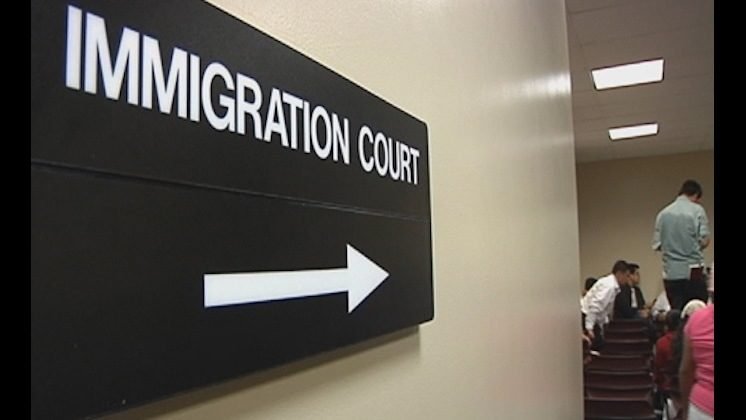US Supreme Court says no right to hearing for some immigrants

WASHINGTON, DC — The U.S. Supreme Court ruled Tuesday that the government can indefinitely detain certain immigrants who say they will face persecution or torture if they are deported to their native countries.
Over the dissent of three liberal justices, the court held 6-3 that the immigrants are not entitled to a hearing about whether they should be released while the government evaluates their claims.
Justice Samuel Alito wrote for the court that “those aliens are not entitled to a bond hearing.”
The case involves people who had been previously deported and, when detained after re-entering the United States illegally, claimed that they would be persecuted or tortured if sent back. One man is a citizen of El Salvador who said he was immediately threatened by a gang after being deported from the U.S.
An immigration officer determined that the immigrants had a “reasonable fear” for their safety if returned to their countries, setting in motion an evaluation process that can take months or years.
The issue for the court was whether the government could hold the immigrants without having an immigration judge weigh in. The immigrants and the Trump administration, which briefed and argued the case before President Joe Biden’s inauguration in January, pointed to different provisions of immigration law to make their respective cases.
Alito, in his opinion for the court, wrote that the administration’s argument that the relevant provision does not provide for a bond hearing was more persuasive.
In dissent, Justice Stephen Breyer saw it differently. “But why would Congress want to deny a bond hearing to individuals who reasonably fear persecution or torture, and who, as a result, face proceedings that may last for many months or years…? I can find no satisfactory answer to this question,” Breyer wrote.
The federal appeals court in Richmond, Virginia, had ruled in the immigrants’ favor, but other appellate courts had sided with the government. Tuesday’s decision sets a nationwide rule, but one that affects what lawyers for the immigrants called a relatively small subset of non-citizens.
